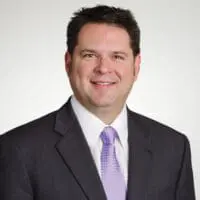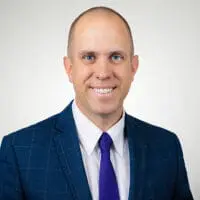Publication
Under Construction – September 2014
Letter from the Editor
by James J. Sienicki
Welcome to our autumn edition of Under Construction. We have packed this issue with discussions of relevant construction issues, practical tips, legislative analyses and industry forecasts for construction and design businesses operating throughout the Mountain West and Southwest.
Jason Ebe starts off this edition with a series of practical tips regarding preparing design and construction contracts in order to mitigate or avoid claims. Cindy Schmidt follows with an analysis of the “cardinal change doctrine” in Arizona, a legal theory pertaining to construction contracts and the contractor’s right to terminate the contract, and/or recover damages if an owner makes excessive, cumulative or otherwise material contract changes that are deemed to be a cardinal change of the contract. Owners and general contractors should be cognizant of this theory and should seek advice when faced with this significant issue.
Hot off the press, Rick Erickson provides an overview of the very recent Arizona Supreme Court decision, Weitz Company L.L.C. v. Heth et. al., noting several key takeaways regarding equitable subrogation, mechanics’ liens and priority. Rick then offers an evaluation of certain courts’ recent treatment of United States v. Spearin, a very old and seminal construction case; he opines that despite Spearin’s legacy, both owners and contractors may be judged by a standard of reasonableness when it comes to following the plans and specifications, and any errors in those plans and specifications. Jeff Singletary and Colin Higgins follow with an overview of California’s prompt payment statutes and highlight some of the most useful elements of these statutes for owners, contractors and subcontractors.
In our next article, Elizabeth Brereton considers electric utilities’ growing investment in generation, transmission and distribution facilities, and predicts that a big construction boom may be coming soon in electric transmission infrastructure. Brett Johnson then discusses the increasingly scrutinized area of government contracting, noting that investigations of fraud, waste, abuse, and False Claims Act or other statutory violations are on the rise; Brett also advises on how to prepare for and mitigate these issues.
Leon Mead evaluates Nevada Revised Statute 608.150, which holds that an “original contractor” is liable for the debts incurred by a subcontractor for labor on a construction project. Leon notes that while the law seems to protect workers from unscrupulous employers, its broad application by union benefit trust funds against general contractors and property owners may necessitate a legislative change. Dan Frost winds up our issue by providing helpful suggestions regarding the effective use of baseline schedules, schedule approvals, schedule updates and schedule revisions as management tools to optimize project performance.
We hope you have a productive and successful fall and look forward to hearing your questions, comments and ideas for future editions of our newsletter!
Regards,
Jim Sienicki
About Snell & Wilmer
Founded in 1938, Snell & Wilmer is a full-service business law firm with more than 500 attorneys practicing in 17 locations throughout the United States and in Mexico, including Los Angeles, Orange County, Palo Alto and San Diego, California; Phoenix and Tucson, Arizona; Denver, Colorado; Washington, D.C.; Boise, Idaho; Las Vegas and Reno, Nevada; Albuquerque, New Mexico; Portland, Oregon; Dallas, Texas; Salt Lake City, Utah; Seattle, Washington; and Los Cabos, Mexico. The firm represents clients ranging from large, publicly traded corporations to small businesses, individuals and entrepreneurs. For more information, visit swlaw.com.









